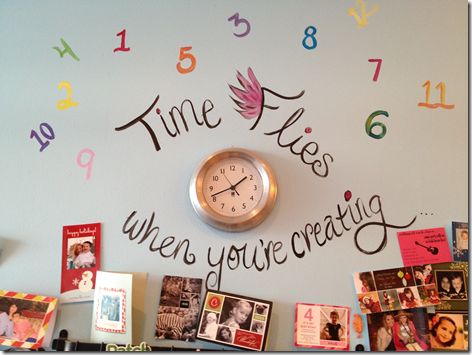I stop at the 7-11 a few blocks from my house several times a week, to pick up a Diet Coke after my workout, a gallon of milk when we are running low and a pint of Ben and Jerry’s when Elysha and I are craving ice cream.
It’s a place I know well.
Yesterday I stopped by on the way home from the gym for a soda. As I entered the store, the woman at the cash register, who owns the store with her husband, said, “Hello! How are you doing today?”
The greeting caught me off guard. She has never spoken to me like that before. Her voice was uncharacteristically cheery, and her platitude was unprecedented. I looked up. Standing beside her was a short, red-headed man in a dark suit. He smiled at me upon making eye contact, a smile that was much too large to be genuine.
I nodded and moved on.
As I turned toward the soda dispenser, the owner said, “If I can help you find anything, please be sure to let me know.”
For a moment, I thought that the red-headed man was robbing the place. This statement was so out of character that I thought there had to be something wrong. Then I heard Red Head begin speaking to her in a low voice about the importance of making each customer feel important.
Suddenly I knew. Corporate 7-11 had come to town. Training was underway.
After pouring my soda, I assumed my position in line at the register. I listened and watched as the owner greeted each customer with a cheery voice and a bright smile as she offered a hot dog, a corn dog or a Cadbury egg to each customer.
I grew more and more annoyed with each passing word.
Finally it was my turn to pay. I placed my soda down upon the counter and reached for my wallet.
“Would you like to try one of our delicious hot dogs today?” the owner asked.
“Stop,” I said. “Please don’t do this. I liked things the way they were before.”
“Excuse me?” the owner said.
“I liked our relationship before,” I said. “When you didn’t greet me at the door and ask if I needed any help. I don’t want any of this.”
Red Head immediately jumped in. “We’re just trying to make your experience as positive as possible, sir,” he said, still smiling.
He reminded me of Ned Flanders from the Simpsons.
“This is the only experience I have ever had in this store that wasn’t positive,” I said. “This is a 7-11. I want to get in and out. I know this lady. We have an actual relationship. Not one of these fake ones that you are forcing upon us.”
“We’re just trying to make sure every 7-11 customer is satisfied with their visit,” Red Head said, still annoyingly upbeat.
“I understand, but this is the only time I haven’t been satisfied with my visit,” I said. “You’re ruining everything.”
Red Head went on to explain that it’s 7-11’s mission to ensure that its customers are assisted in every way possible while visiting their stores, and I went on to explain that the only thing wrong with my neighborhood 7-11 was his presence.
The jerk never stopped smiling, no matter what I said.
But I was serious. I don’t want a warm, falsified greeting every time I enter that store. I don’t want to be offered assistance in finding something in a store that is smaller than my classroom or suggestive-sold a hot dog every time I try to pay. I want my usual quick entry, the occasional nod of acknowledgement, and the rapid exit.
The last thing I want is an experience.
I ended the conversation by asking Red Head if he would be back tomorrow. “No, sir,” he said. “Not tomorrow.”
“Good,” I said, reestablishing eye contact with the owner. “Then we’ll talk tomorrow. Or not talk. Okay?”
She did not offer me a smile in return. She said, “Okay,” and nodded, which was exactly what I wanted.















